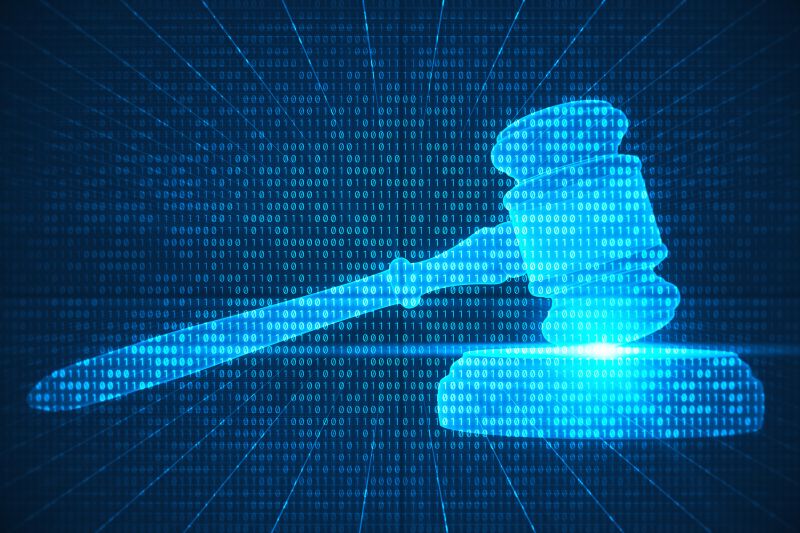As the American Bar Association debates its rules governing online learning, Ken Randall asks a more fundamental question: Why should the accreditor limit how law faculties choose to teach?
.

Audio
.
Over the past few months, the American Bar Association has moved one step closer to allowing distance education in the first year of law school.
The ABA’s Council on Legal Education recently voted to recommend to the ABA that first-year law students be allowed to take up to 10 credits by distance education. The recommendation also would approximately double the total number of online credits that a law student can take toward the J.D. degree over all. In sum: one-third of a J.D. candidate’s credits would be permitted online, including the 10 credits in the first year.
While the council’s recommendation is currently up for review and comment before the final decision, I’d like to reframe the debate.
Historically, there are two groups of advocates with strong opinions about “online law schools.” For lack of a better phrase, and with some simplification, let’s call them the traditionalists and the progressives.
The traditionalists generally look down on distance education. They opine that online learning provides an inferior legal education. It misses, they say, the traditional engagement of the Socratic method of teaching, the student interaction of study groups and the skills simulations of moot court and trial advocacy, practicums, and competitions. Traditionalists espouse that the communitarian aspects of traditional law schools are important and must be retained through campus programs.
On the other hand, the progressives believe that online education provides the innovation badly needed at a time when law school applications have dropped by 50 percent. The high quality of online pedagogy has been established, they say, by the fact that many of the best universities in the world deliver online programs, virtually without restriction, in other disciplines. Many fine law teachers already teach online, just like many fine attorneys practice law primarily through technology. Many students took online classes in college and want more of them in law school.
These lines were drawn in 2004, when the ABA first considered and adopted the standard that allows a limited number of online credits. (Disclosure: I remember this well because I chaired the first ABA Technology Committee charged with recommending whether to allow distance learning legal education. I now lead a company that provides online legal education.)
What ultimately emerged — after much debate and subsequent compromise — was a standard allowing 12 online credits, which could only be earned after the first year.
Essentially, the standard has represented a compromise between the traditionalists and progressives.
.

.
Asking a Different Question
But for purposes of reviewing the new ABA proposal, I’m not sure it really matters whether the traditionalists or the progressives are exactly right, or even if one is more right than the other one.
We should reframe the debate to ask what, if anything, justifies accreditation standards that restrict a law school’s freedom to teach by distance education.
The ABA doesn’t mandate that every school must employ distance education. So conversely, I would ask, are there legitimate reasons for accreditors to restrict the presumed academic freedom of law faculties, individually or collectively, to choose technology as their pedagogical platform of choice? In other words, why can’t one faculty be traditionalist and another progressive in advancing their academic mission?
The ABA accords law schools significant freedom through its standards. For example, the ABA gives law schools substantial discretion in what is taught and how it’s taught. All that’s required in the curriculum is two credits of Legal Ethics; a writing experience in the 1L year and again after the first year, which could be one credit each; and six credits of experiential course work. At most, therefore, the ABA mandates only about 12 percent of the J.D. curriculum. Law faculties have freedom over the remaining 88 percent. Even the 12 percent of required content gives faculties a lot of freedom in teaching it. As legal educators, we celebrate our independence in choosing from an array of subjects and pedagogies.
So if faculties are free mostly to teach the subjects they want and how they teach them, why can’t they decide on their platform of delivery? Just as they can decide whether a theater-style large lecture hall is or isn’t a good way to connect with face-to-face students, they should be able to decide whether to flip their classrooms toward technology-based learning. The pending ABA proposal would simply grant law schools more freedom to innovate and faculty more freedom in how to teach. Even within the few subjects the ABA requires to be taught — largely involving skills training — would even a traditionalist believe that faculties should be banned from choosing technology-based training?
.

.
Overarchingly, the ABA requires that all schools “maintain a rigorous program of legal education that prepares its students … for admission to the bar and for effective, ethical, and responsible participation as members of the legal profession.”
When it comes to educational “rigor,” it would be easy to circle back to the traditionalist-progressive debate. The former says that online education simply isn’t rigorous; the latter would present evidence of online rigor.
But that dichotomy, again, misses the point. Why? Because “rigor” isn’t defined. It’s certainly not sufficiently defined to impede our academic freedom in the platform by which we choose to teach.
If by rigor we mean faculty-student engagement, we know that brick-and-mortar classes vary greatly in this regard, with many classes consisting primarily of a lecture, with little student feedback or participation. There is no one campus standard of, or approach to, rigor.
Today, even in 1L classes, where the Socratic method historically was used to ensure rigor, faculties have been free to change that pedagogy to the point where it would be unrecognizable to Socrates. The traditional 1L instruction involved faculty questioning students rather than lecturing or answering questions. Today, even 1L professors use PowerPoint presentations and other technology more than they question their students. Unlike Socrates, most 1L professors gladly welcome questions that students raise. And when a professor does pose questions today, the goal is more about basic student comprehension than about rigor.
The evolving pursuit of rigorous education should not end where technology begins. When law faculty innovated with “problem-based” pedagogy, collaborative learning, new assessment models and interdisciplinary teaching, law schools presumed that faculty would guarantee rigor. We owe online teachers the same presumption.
.

.
Under the ABA definition, an online class doesn’t count as one unless more than one-third of the minutes are taught remotely. That definition would seem to concede that a blend of traditional and nontraditional teaching can be effective and thus apparently rigorous. Is there a rational reason to conclude that a law course loses its rigor when 34 percent of the course is taught via distance learning — that faculty freedom ends at 33 percent of the course?
Let’s close with the ABA requirement, above, that law schools must prepare their students for admission to the bar, including passing the bar. Would anyone logically suggest that that standard will be better met by limiting a faculty’s freedom to decide between online and traditional teaching? I don’t see how.
First-year courses form the bulk of what’s tested on the bar exam. At a time when many schools face declining bar passage — and when no first-year teaching occurred online — even the traditionalists couldn’t argue that traditional teaching must be retained for bar passage. In licensing tests in other subject areas, online preparation often achieves better outcomes than residential teaching. When students at law schools experimenting with online first-year classes under ABA variances soon take bar exams, we will, for the first time, have data to assess online teaching and bar exams.
So, in the final analysis, is there any compelling accreditation-based reason to limit a law school’s freedom to engage in distance education? None to my analysis. To be sure, there are some positive virtues to traditional legal education. Running into a faculty member’s office to talk, and studying in a group with classmates, can be stimulating and beneficial.
But those virtues shouldn’t justify restricting academic freedom about online learning, just like the benefits of online teaching (e.g., closer replication of the skills used in law practice, disciplined instructional design) shouldn’t mandate that schools adopt distance education over brick-and-mortar teaching.
The ABA should continue to liberalize its distance education standard because it gives schools the freedom to make their own academic decisions. There’s no compelling reason to restrict that freedom. Ultimately, online legal education advances student inclusivity. Let’s let law faculties autonomously safeguard the quality of online learning.
.


.









